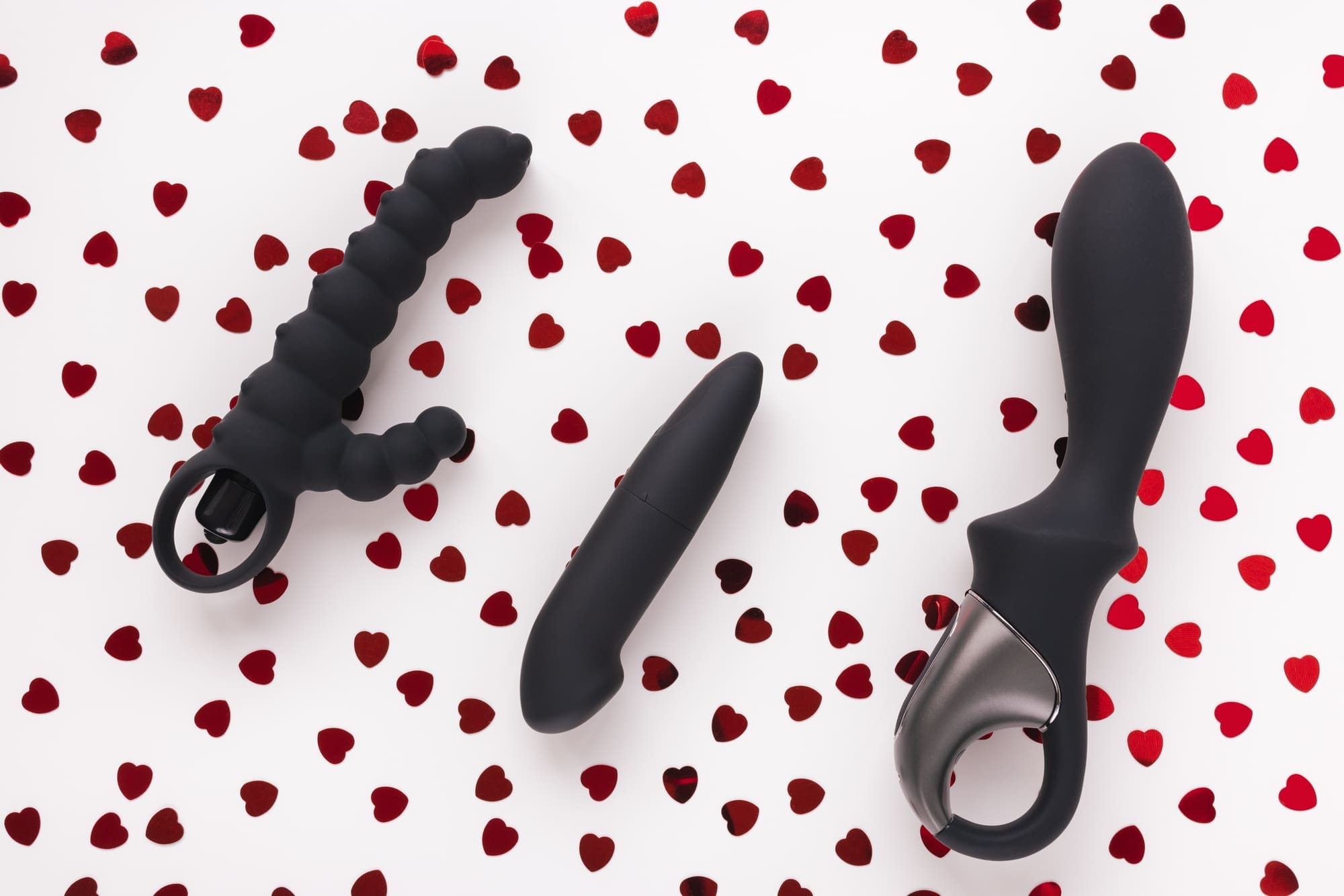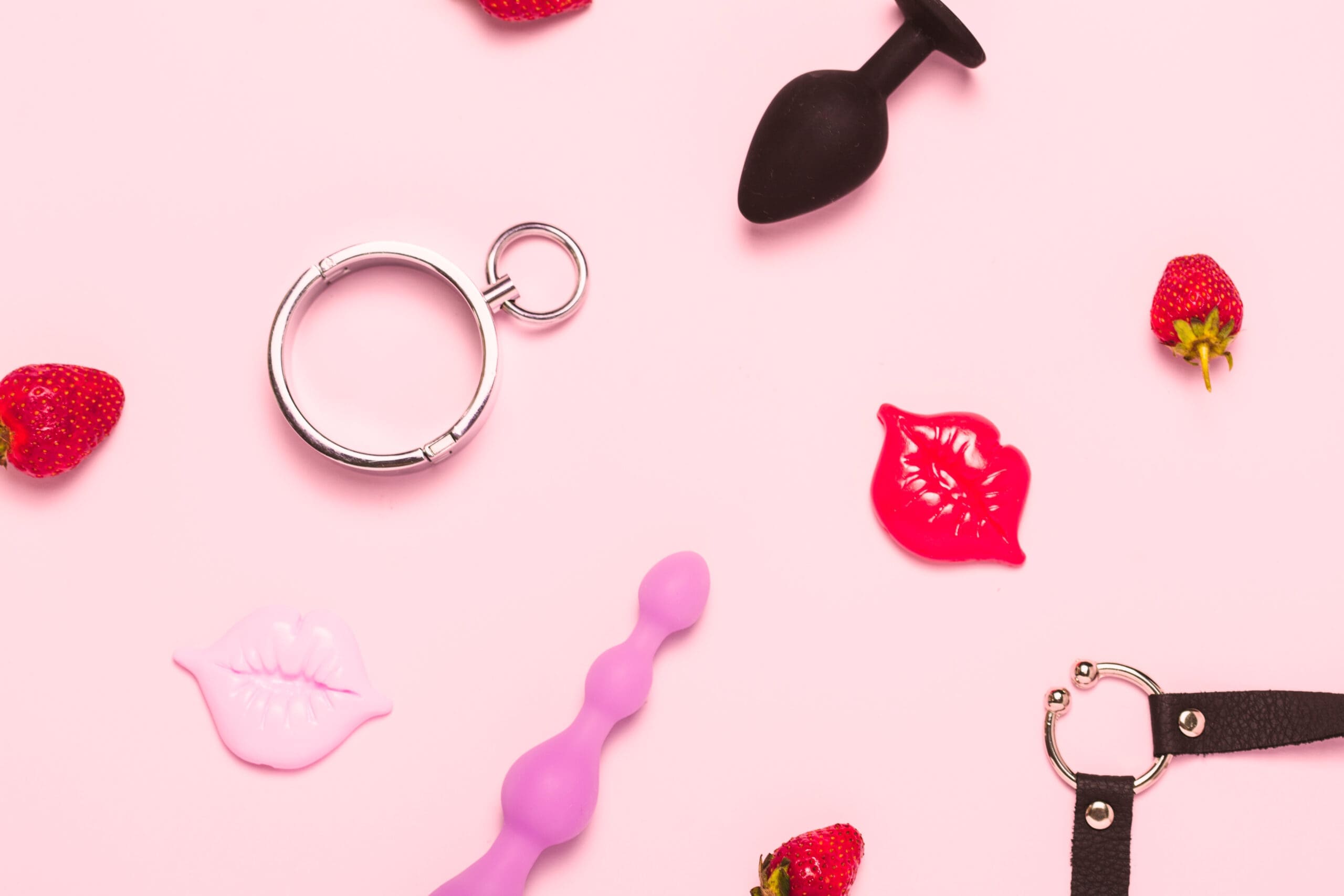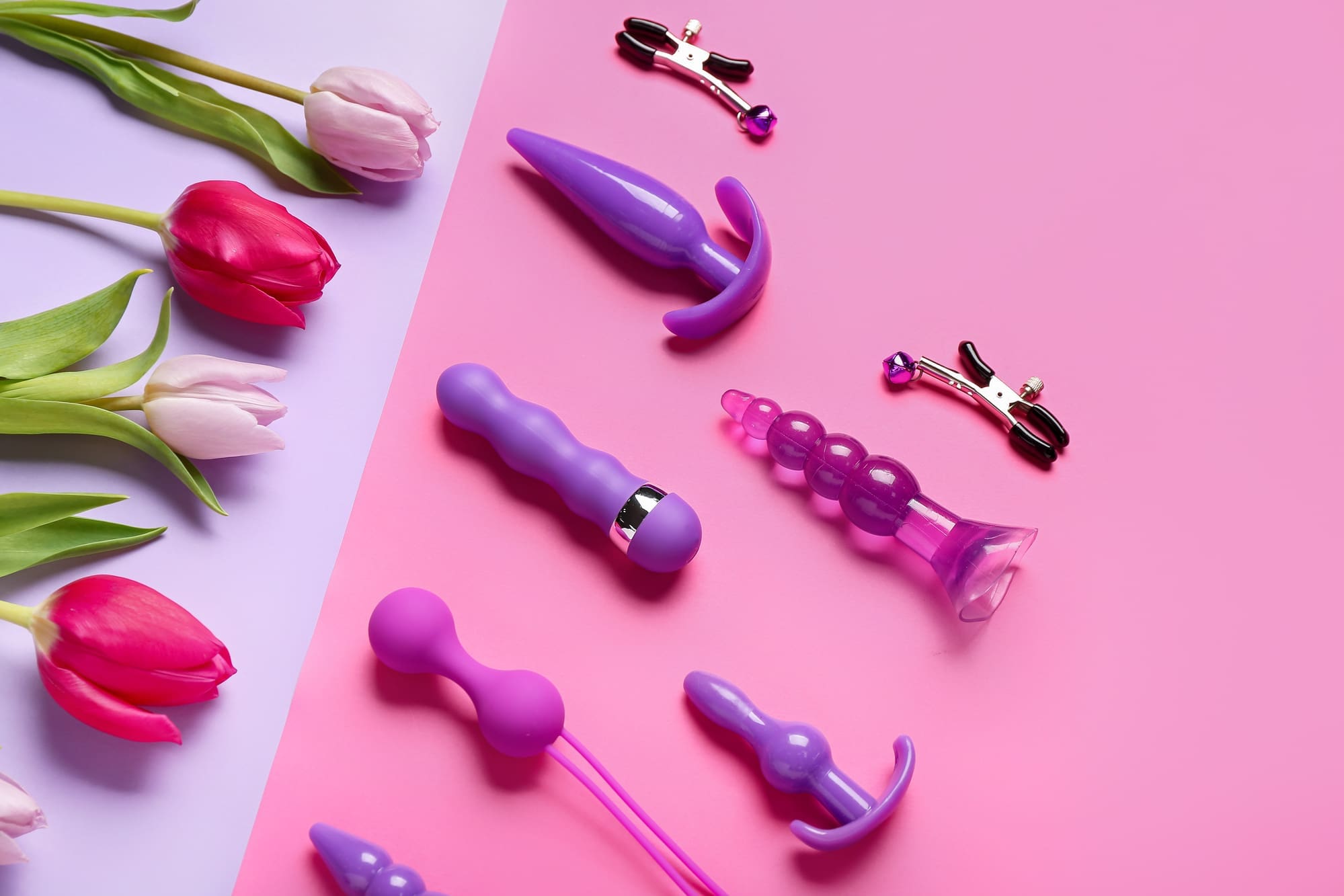It is very important to properly maintain your sex toys to ensure both their longevity and your safety . By maintaining them properly, you can prevent infections, skin irritations and wear and tear on the material .
In this article, we share the must-know guidelines for the maintenance and hygiene of your sex toys, covering materials, cleaning methods and other useful tips.
Why maintenance is important
Keeping sex toys accurately maintained and clean is essential to avoid the following:
- Infections
- Skin irritations
- Inflammations
Due to unsanitary practices, bacteria, fungi and other pathogens can easily spread through sex toys, especially when they come in contact with sensitive body parts or body fluids. Maintaining good hygiene can prevent infections such as fungal infections, herpes and bacterial vaginosis.
Regular maintenance maintains the original quality and functionality of your sex toys. For example, silicone toys may lose their texture and integrity with improper cleaning methods, while glass and metal toys may crack or corrode . Following the recommended cleaning guidelines extends the life of the toys and preserves their performance!
Material degradation, such as cracks in silicone or cracks in glass, poses a safety risk when using sex toys and we should not have that! Regular inspection and cleaning of toys can minimize these risks.

Materials and their properties
Silicone
- Characteristics: Hypoallergenic, non-porous and long-lasting. Silicone can withstand high temperatures (up to 250°C) and has excellent heat resistance.
- Advantages: Easy to clean, heat and chemical resistant, pliable and suitable for biological use.
- Disadvantages: Fairly pricey and not fully recyclable.
Glass
- Features: Non-porous, easy to clean and long-lasting. Glass can withstand high temperatures and does not react with other substances.
- Advantages: Visually attractive, resistant to abrasion and easy to sterilize.
- Disadvantages: Glass toys may break if used roughly.
ABS plastic
- Characteristics: Affordable, durable but more porous than silicone. ABS is a thermoplastic polymer that is lightweight, sturdy and highly resistant to corrosion.
- Advantages: Inexpensive, easy to paint, non-toxic in solid form and versatile in use.
- Disadvantages: Less heat resistant, sensitive to UV light and solvents. May emit noxious fumes when heated.
Stainless steel
- Characteristics: Stainless steel is sturdy, non-porous, resistant to corrosion and can handle temperature variations well. The material is sterilizable and offers long-term usability.
- Advantages: It is suitable for temperature differences, lasts a long time and shows little wear.
- Disadvantages: It is heavier than other materials and may have a higher price.
Rubber
- Characteristics: Economical, resilient, flexible and resistant to abrasion.
- Benefits: Affordable and available in both natural and synthetic forms. Natural rubber is biodegradable and elastic.
- Disadvantages: Can cause allergic reactions. Rubber deteriorates at higher temperatures and has pores, making it more susceptible to mold and bacterial growth.
Recommended lubricants for sex toys
When choosing lubricants for sex toys, it is very important to select the right type to ensure safety and comfort . Here is a summary of which types of lubricants are most suitable for different sex toy materials:
Water-based lubricants
Water-based lubricants are easy to rinse off and ideal for both vaginal and anal applications. However, they may dry up and may need to be reapplied. Water-based lubricants are suitable with:
- Silicone sex toys: They do not damage the material, making them a versatile choice for almost all silicone toys.
- Glass and metal sex toys: Also safe for these non-porous materials and easy to clean.
Silicone-based lubricants
Silicone lubricants have a long-lasting effect and are suitable for activities in water, but should not be used with silicone sex toys to avoid damage. They are more difficult to clean. Suitable for:
- Glass and metal sex toys: Provides long-lasting smoothness and does not react with these materials.
- Hard plastic sex toys: Can also work well with hard plastic, provided the material is strong enough to withstand the silicone substance.
Oil-based lubricants
Generally, these are not recommended for use with sex toys because of possible damage to materials and the challenge of cleaning. However, they are suitable for:
- Glass, metal and hard plastic sex toys: These non-porous materials can be used with oil-based lubricants, but it is still important to check suitability.
For optimal comfort, it is advisable to choose lubricants that are hypoallergenic and do not contain parabens if you are concerned about chemical additives. This way, you can prevent allergic reactions and ensure safer use, especially if you have sensitive skin.

Cleaning and maintenance methods by material
Silicone
Make use of warm water and a mild soap. Rinse thoroughly and dry carefully.
Glass
Clean with lukewarm water and a mild soap. Glass sex toys can be safely cleaned in the dishwasher, but be careful not to damage them through direct contact with other hard objects.
ABS plastic
Use warm water and mild soap. If the toy is not waterproof, avoid immersion. Clean electric toys with a damp cloth.
Stainless steel
Use warm water and a mild soap. Make sure the toy is thoroughly dry to prevent rust.
Latex
Use warm water and mild soap to clean the toy. Make sure the toy is completely dry to prevent the formation of mold.
General maintenance guidelines
Before using sex toys, it is important to check them regularly for cracks, wear or other damage to avoid possible safety risks. Damaged toys can lead to infections or discomfort.
Make sure you store sex toys in a cool, dry and dark place, separate from other toys. For example, silicone toys can react with other silicone toys and damage their surfaces. Store toys in separate bags or containers for extra protection.
It is also wise not to use harsh chemicals or products containing alcohol, as these can corrode the material or cause irritation. Rather, choose a mild soap or a special toy cleaner as a cleaning agent.

Tips for extending life
- Avoid extreme temperatures: It is important to avoid exposing toys to extreme temperatures, as this can damage or deform the material. Therefore, store them at room temperature and avoid direct sunlight.
- Choose the right lubricant: Use water-based lubricant for silicone toys to prevent surface damage. Please note that silicone-based lubricants can damage other materials.
- Keep them clean and fresh: Regular cleaning and maintenance is essential to maintain the quality of the toys and prevent bacterial growth.
Conclusion
Maintaining your sex toys properly is very important, both for their durability and your personal safety. By cleaning and disinfecting them regularly and selecting appropriate lubricants, you can ensure a safe and satisfying experience . Follow these recommendations and develop a cleaning routine that suits your needs for optimal hygiene and pleasure!





